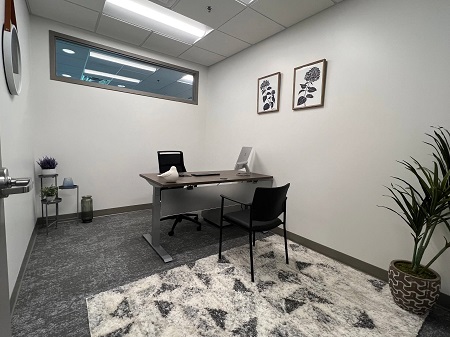Our Workspaces Designed with Your Business in Mind
About Us
Designed with a nostalgic aesthetic of classic automobiles that features a modern twist, Werkstatt360 provides a workspace with a focus on hospitality and creating a community where people connect and thrive.
Under this approach, everyone can create their ideal environment that best suits their working style to find success and comfort.
Werkstatt360’s business solutions include private office spaces, virtual offices, and meeting spaces for individuals and companies in the Brentwood and Green Hills communities.




















